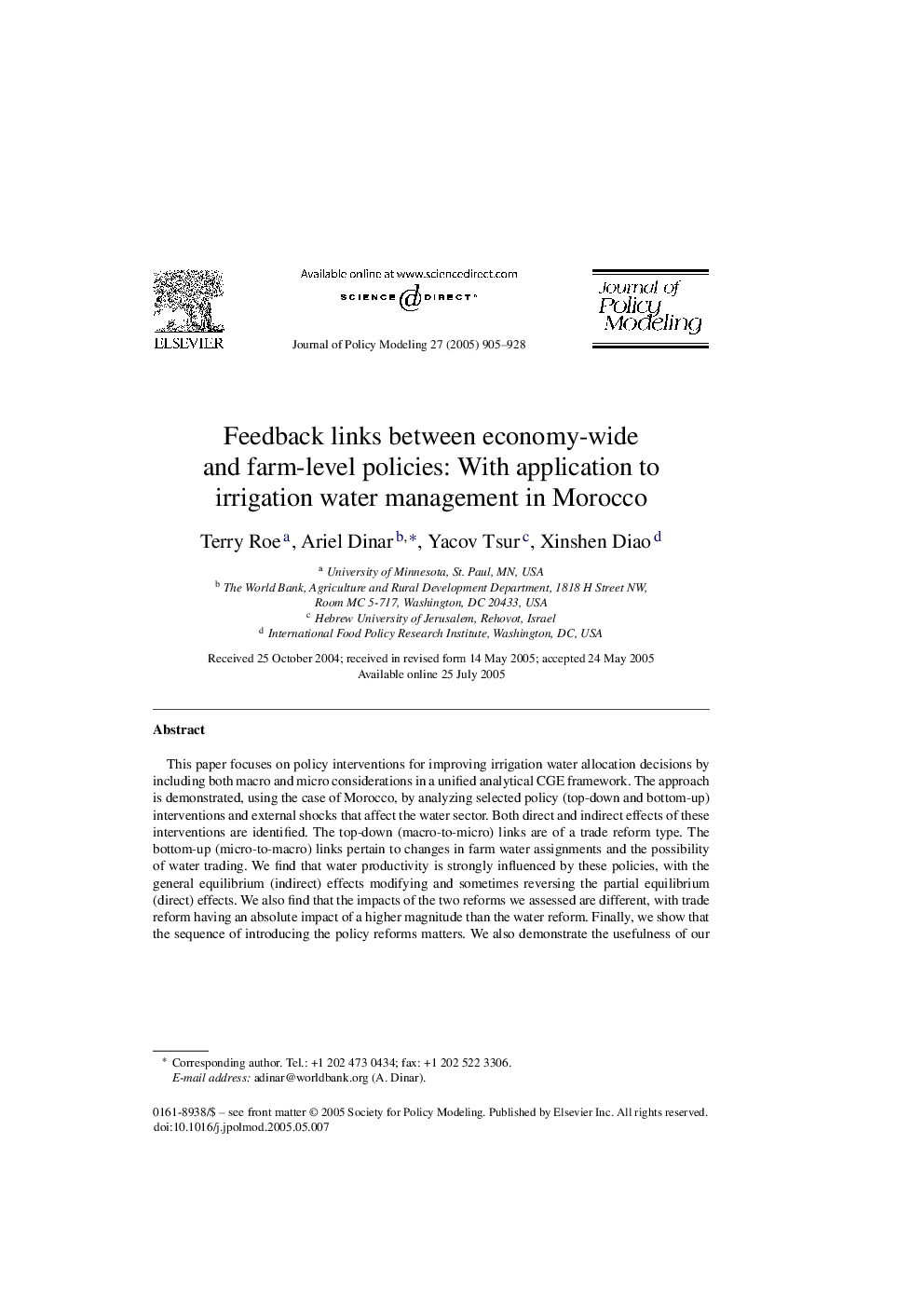| Article ID | Journal | Published Year | Pages | File Type |
|---|---|---|---|---|
| 10479485 | Journal of Policy Modeling | 2005 | 24 Pages |
Abstract
This paper focuses on policy interventions for improving irrigation water allocation decisions by including both macro and micro considerations in a unified analytical CGE framework. The approach is demonstrated, using the case of Morocco, by analyzing selected policy (top-down and bottom-up) interventions and external shocks that affect the water sector. Both direct and indirect effects of these interventions are identified. The top-down (macro-to-micro) links are of a trade reform type. The bottom-up (micro-to-macro) links pertain to changes in farm water assignments and the possibility of water trading. We find that water productivity is strongly influenced by these policies, with the general equilibrium (indirect) effects modifying and sometimes reversing the partial equilibrium (direct) effects. We also find that the impacts of the two reforms we assessed are different, with trade reform having an absolute impact of a higher magnitude than the water reform. Finally, we show that the sequence of introducing the policy reforms matters. We also demonstrate the usefulness of our model approach in the case of the Water Directive Framework and the Common Agricultural Policy, both applied in EU countries in an antagonistic manner.
Keywords
Related Topics
Social Sciences and Humanities
Economics, Econometrics and Finance
Economics and Econometrics
Authors
Terry Roe, Ariel Dinar, Yacov Tsur, Xinshen Diao,
